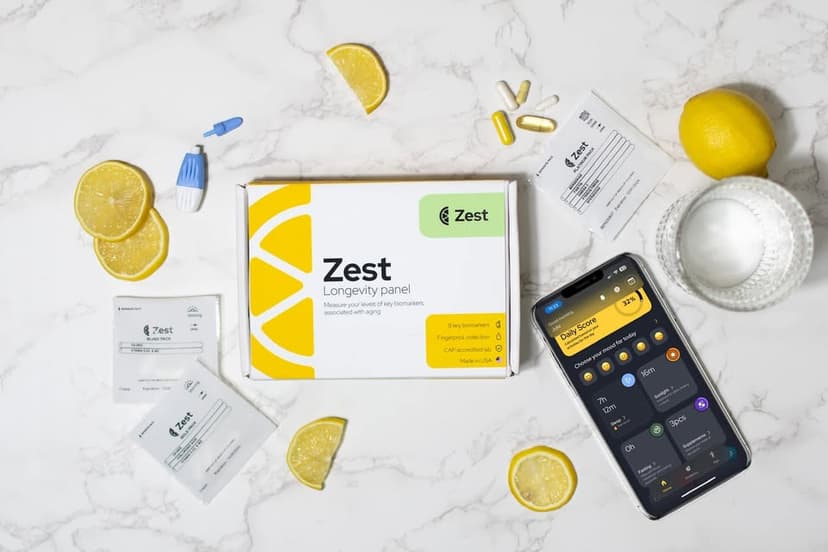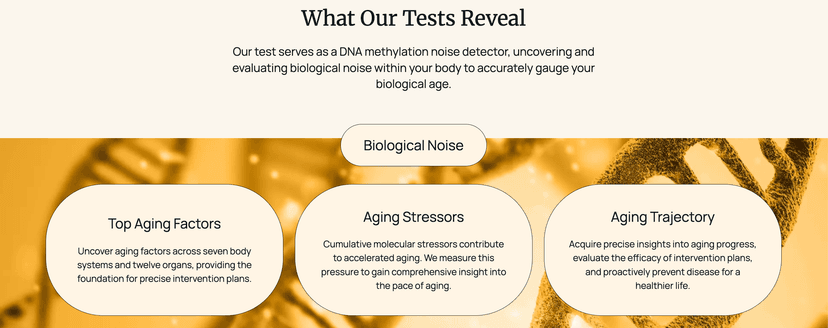Hormones play a crucial role in our bodies, acting as messengers that regulate various functions. As we age, our hormone levels can change, leading to significant impacts on our health. Understanding how hormones affect aging can help us manage these changes and improve our quality of life.
Key Takeaways
- Hormones regulate essential body functions and their balance is crucial for good health.
- Aging can lead to changes in hormone levels, affecting both physical and mental health.
- Lifestyle choices like diet and exercise can influence hormone balance.
- Hormone replacement therapy can help manage symptoms of hormonal imbalance.
- Ongoing research aims to find new treatments and preventive measures for hormone-related issues.
The Role of Hormones in Aging
Impact on Physiologic Processes
Hormones are essential for controlling many body functions, such as heart rate, sleep cycles, and mood. As we age, the levels of certain hormones, like estrogen, testosterone, growth hormone, and melatonin, decrease. This decline affects how our bodies work and can lead to various health issues. For example, lower estrogen levels in women can cause menopause, while reduced testosterone in men can lead to decreased muscle mass.
Biochemical Interactions
The complex interactions between hormones and aging involve many biochemical processes. These interactions impact metabolic pathways, immune responses, and tissue health. Understanding these relationships is key to preventing age-related diseases and developing treatments to reduce their effects.
Age-Related Diseases
Changes in hormone levels are linked to many age-related diseases. For instance, lower estrogen and testosterone levels can lead to bone loss, making conditions like osteopenia and osteoporosis more common. By studying these changes, scientists hope to find ways to prevent or treat these diseases more effectively.
Hormones play a vital role in our health as we age. By understanding how they work, we can take steps to maintain our well-being and reduce the risk of age-related diseases.
Common Hormonal Changes with Age
Declining Hormone Levels
As we age, our bodies produce less of certain hormones. For women, menopause is a significant change, usually occurring around age 50, where estrogen and progesterone levels drop. Men also experience a decline in testosterone, which can affect energy levels, mood, and muscle mass. These hormonal shifts can lead to various symptoms like hot flashes, mood swings, and decreased libido.
Hormone Receptor Sensitivity
Not only do hormone levels change, but the sensitivity of hormone receptors also decreases. This means that even if hormone levels are adequate, the body's response to these hormones may be diminished. This can impact various bodily functions, including metabolism and immune response.
Endocrine Function
The endocrine system, which is responsible for hormone production, also undergoes changes with age. The glands may become less efficient, leading to a further decline in hormone levels. This can affect everything from bone density to cardiovascular health.
It's important to understand these changes to manage symptoms and maintain a good quality of life as we age.
Causes of Hormonal Imbalance in Seniors
Lifestyle Factors
Lifestyle choices can greatly affect hormone levels in seniors. Factors such as a poor diet, lack of exercise, and inadequate sleep can lead to imbalances. Being overweight or under constant stress also contributes to this issue. Here are some common lifestyle factors:
- Poor diet and nutrition
- Lack of physical activity
- Inadequate sleep
- Chronic stress
- Misuse of medications
Endocrine Gland Dysfunction
The endocrine glands are responsible for producing hormones. When these glands don't function properly, it can lead to hormonal imbalances. Conditions like hypothyroidism or diabetes are examples where the endocrine system is compromised. Regular health check-ups can help identify and manage these issues.
Natural Aging
Aging naturally affects hormone production. For women, menopause leads to a decline in estrogen and progesterone levels. Men experience a similar decline in testosterone, known as andropause. These changes are a normal part of aging but can cause symptoms like mood swings, weight gain, and reduced libido.
Understanding the causes of hormonal imbalance is crucial for finding effective treatments. Regular health assessments can help seniors determine the underlying cause and recommend a treatment plan.
Health Implications of Hormonal Imbalance
Hormonal imbalances can significantly affect mental health. Fluctuations in hormone levels can lead to mood swings, anxiety, and depression. For instance, low levels of thyroid hormone can cause depressive symptoms, while high levels of cortisol, the stress hormone, can lead to anxiety and sleep disturbances.
The physical health of individuals can also be compromised due to hormonal imbalances. These imbalances can contribute to weight gain, fatigue, and muscle weakness. Additionally, imbalances in insulin and thyroid hormones can lead to metabolic disorders, affecting overall energy levels and physical well-being.
Hormonal imbalances are linked to the development of chronic diseases. For example, an imbalance in insulin can lead to diabetes, while imbalances in estrogen and testosterone can increase the risk of osteoporosis and cardiovascular diseases. Managing hormone levels is crucial in preventing these long-term health issues.
Maintaining hormonal balance is essential for both mental and physical health, as it helps prevent a range of chronic diseases and promotes overall well-being.
Strategies for Maintaining Hormonal Balance
Diet and Nutrition
Eating a balanced diet is crucial for maintaining hormonal balance. Incorporate plenty of fruits, vegetables, lean proteins, and whole grains into your meals. Avoid processed foods and excessive sugar, as they can disrupt hormone levels. Healthy fats, like those found in avocados and nuts, are also beneficial.
Exercise and Physical Activity
Regular physical activity can help regulate hormones. Aim for at least 30 minutes of moderate exercise most days of the week. This can include activities like walking, swimming, or yoga. Exercise not only helps with weight management but also reduces stress, which can positively impact hormone levels.
Medical Interventions
In some cases, medical interventions may be necessary to maintain hormonal balance. This can include hormone replacement therapy (HRT) or medications to address specific hormonal imbalances. It's important to work with a healthcare provider to determine the best course of action for your individual needs.
Maintaining hormonal balance is a multifaceted approach that includes diet, exercise, and sometimes medical interventions. By taking proactive steps, you can help ensure your hormones remain in harmony as you age.
Hormone Replacement Therapy
Benefits and Risks
Hormone Replacement Therapy (HRT) can help manage symptoms of hormonal imbalance, such as hot flashes and mood swings. However, it's important to weigh the benefits against the potential risks. Some risks include blood clots, stroke, and certain types of cancer.
Types of Hormone Therapy
There are different types of HRT available:
- Estrogen Therapy: Often prescribed for women who have had a hysterectomy.
- Progesterone Therapy: Usually combined with estrogen to reduce the risk of uterine cancer.
- Testosterone Therapy: Commonly used for men with low testosterone levels.
- Bioidentical Hormone Therapy (bHRT): Made from plant extracts and designed to be chemically identical to human hormones.
Monitoring and Adjustments
Regular monitoring is crucial when undergoing HRT. This includes:
- Blood Tests: To check hormone levels.
- Medical Check-ups: To monitor overall health and adjust dosages if needed.
- Symptom Tracking: Keeping a diary of symptoms to discuss with your healthcare provider.
Regular follow-ups ensure that the therapy is effective and safe, minimizing potential risks.
Future Directions in Hormonal Research
Innovative Treatments
The future of hormonal research is promising, with scientists exploring new treatments that could revolutionize how we manage aging. One key area is the development of personalized hormone therapies tailored to individual genetic profiles. This approach aims to maximize benefits while minimizing side effects.
Preventive Measures
Preventive measures are also a significant focus. Researchers are investigating how early interventions can help maintain hormonal balance and prevent age-related diseases. This includes lifestyle changes, dietary supplements, and early medical screenings.
Ongoing Studies
Ongoing studies are crucial for advancing our understanding of hormones and aging. These studies aim to uncover the complex interactions between different hormones and how they affect the aging process. The goal is to develop more effective treatments and preventive strategies.
The future of hormonal research holds great potential for improving the quality of life for seniors. By focusing on innovative treatments, preventive measures, and ongoing studies, we can look forward to a healthier aging process.
Conclusion
Hormones play a vital role in how our bodies age. They affect everything from our mood and energy levels to our metabolism and overall health. As we get older, our hormone levels change, which can lead to various health issues. However, by understanding these changes and taking steps to manage our hormone levels, we can improve our quality of life. Eating a balanced diet, exercising regularly, and getting enough sleep are simple yet effective ways to help keep our hormones in check. Additionally, hormone therapy can be an option for those who need it. By paying attention to our hormonal health, we can age more gracefully and stay healthier for longer.
Frequently Asked Questions
What role do hormones play in aging?
Hormones influence many body processes, including growth, metabolism, and mood. As we age, changes in hormone levels can affect these processes, leading to age-related diseases.
Why do hormone levels decline with age?
As people get older, their bodies produce fewer hormones and the receptors on cells become less sensitive. This natural decline can be influenced by lifestyle factors and endocrine gland function.
What are common symptoms of hormonal imbalance in seniors?
Common symptoms include fatigue, weight gain, mood swings, and sleep disturbances. These symptoms can impact both physical and mental health.
How can I maintain hormonal balance as I age?
Maintaining a healthy diet, exercising regularly, and managing stress can help. In some cases, medical interventions like hormone replacement therapy may be necessary.
What is hormone replacement therapy (HRT)?
HRT involves taking medications to replace hormones that the body no longer produces in sufficient quantities. It can help manage symptoms of hormonal imbalance but comes with potential risks and benefits.
Are there new treatments for hormonal imbalance on the horizon?
Ongoing research is exploring innovative treatments and preventive measures to better manage hormonal imbalance and its effects on aging.
























